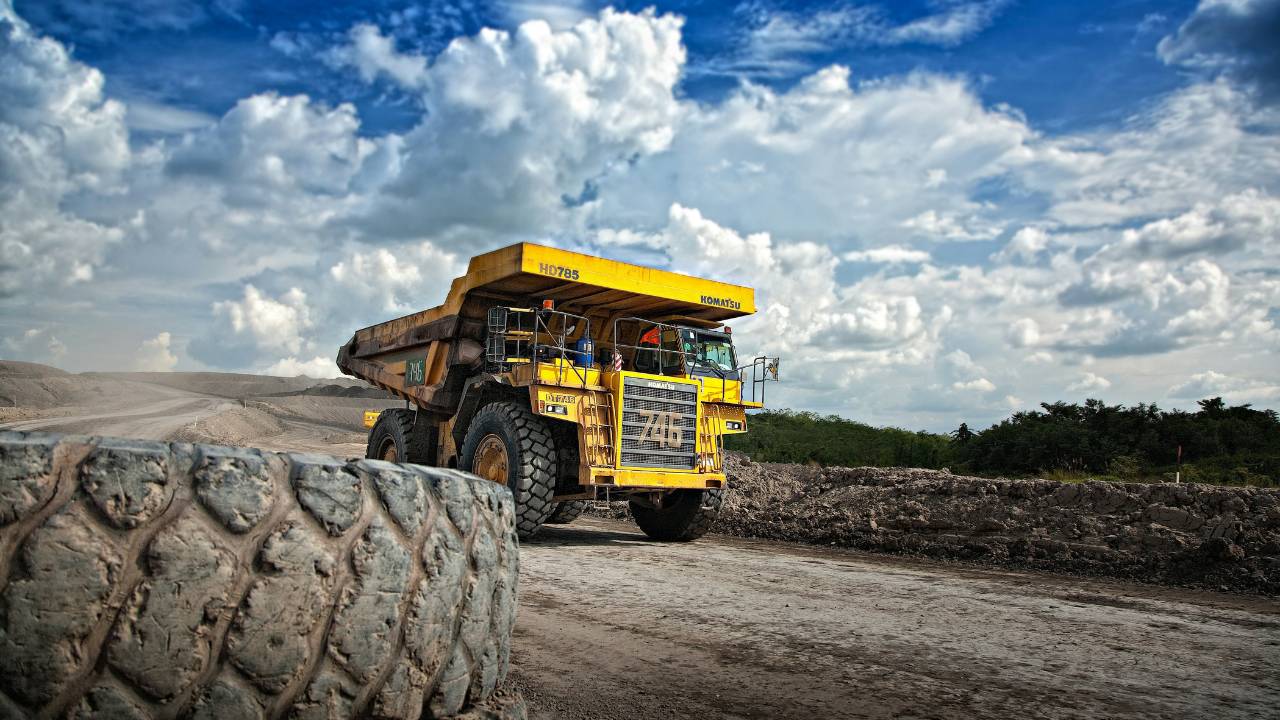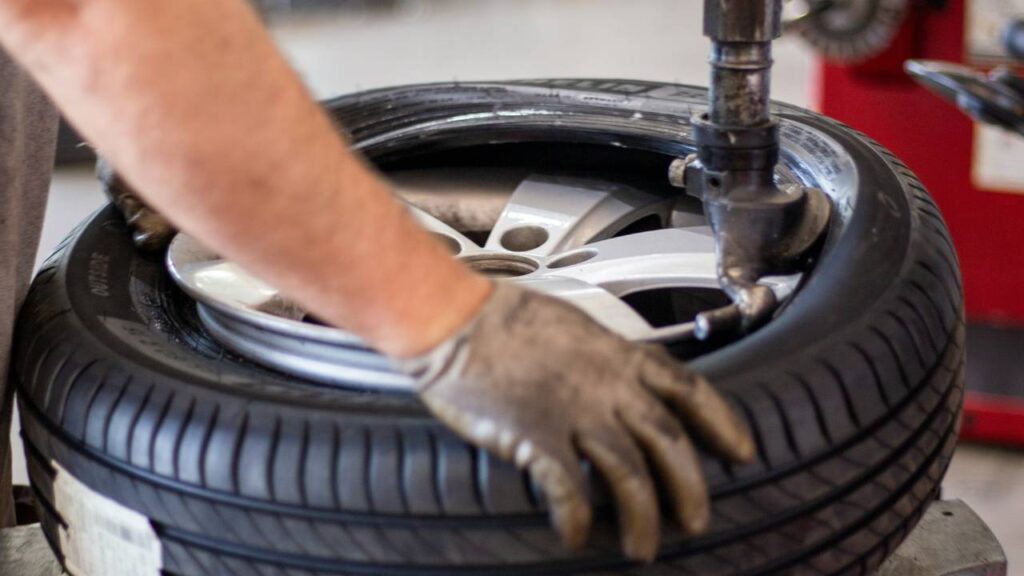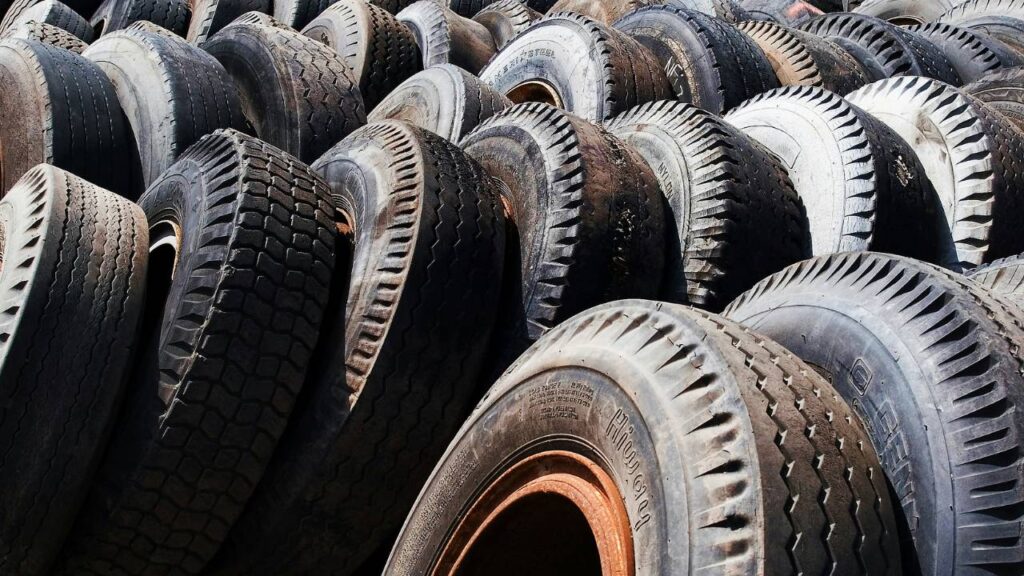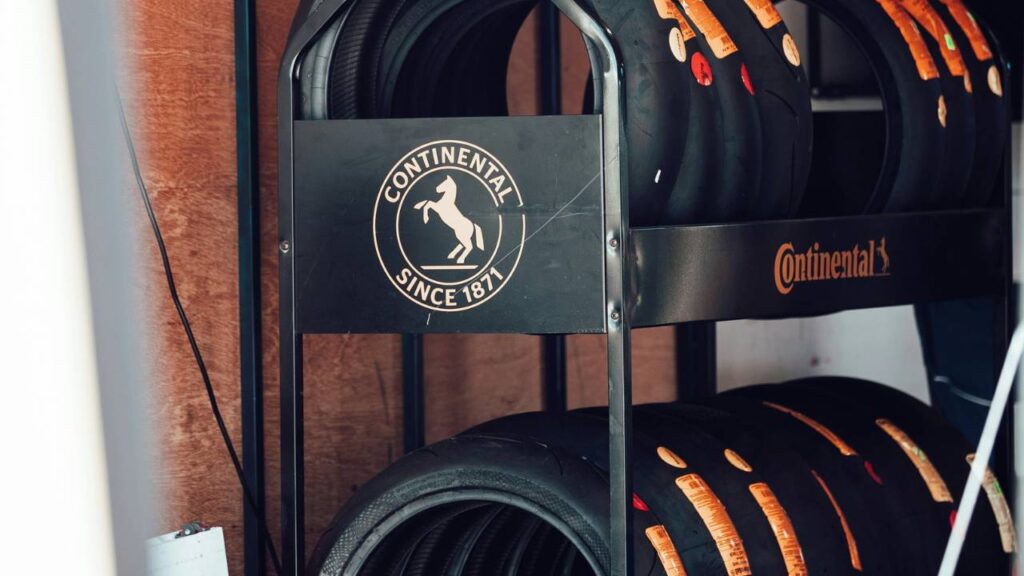
Choosing the right tyre solutions for construction fleets can significantly impact your fleet’s efficiency and safety. The rigorous demands of construction sites require tyres that are durable and reliable. Investing in high-quality tyres tailored to construction environments ensures your fleet can handle tough terrains and heavy loads with ease.
Effective fleet management includes regular tyre maintenance to prevent breakdowns and extend tyre lifespan. Selecting tyres with robust treads and sturdy sidewalls minimises the risk of punctures and other damages. By prioritising tyre integrity, you lower the chances of costly downtime and enhance overall operational safety.
Staying informed about the latest tyre technologies and innovations can provide additional benefits. Advanced tyre designs now offer improved traction and fuel efficiency, contributing to a more cost-effective and eco-friendly fleet. Making informed tyre choices is a key factor in maintaining a productive and safe construction fleet.
Assessing Tyre Needs for Construction Fleets
When managing construction fleets, assessing your tyre needs is crucial for enhancing productivity and performance. Key considerations include understanding your fleet operations and identifying common tyre challenges.
Understanding Fleet Operations
Understanding your fleet’s daily operations helps determine the type of tyres required. Construction fleets often operate in rough terrains, making it essential for tyres to have strong durability and traction. Assessing the average load and types of surfaces your fleet operates on is vital.
Consider the mix of vehicles in your fleet. Excavators, dump trucks, and loaders may all require different tyre specifications. Ensure tyres support the weight and activity of each specific vehicle to maintain high performance levels.
Identifying Common Tyre Challenges
Common tyre challenges in construction fleets include punctures, wear, and tear due to harsh conditions. Frequent punctures can slow down projects and affect overall productivity. Regular checks for debris and maintaining optimal tyre pressure can help mitigate these issues.
Uneven wear is another challenge. Monitoring tread depth and conducting routine inspections will allow you to identify and address wear patterns promptly. Addressing these tyre challenges ensures better performance and a longer lifespan for your tyres.
Innovative Tyre Technologies and Features

Innovative tyre technologies for construction fleets focus on improvements in durability and adaptability to diverse construction environments. These advancements aim to enhance the lifespan of tyres and optimise their performance under varying conditions.
Advancements in Tyre Durability
One major breakthrough is the development of self-healing tyres. These tyres contain materials that can automatically seal punctures, significantly reducing downtime. Another important technology is reinforced sidewalls, which provide extra protection against cuts and abrasions.
Advanced rubber compounds have also been introduced, offering higher resistance to wear and tear. These compounds are designed to withstand harsh conditions, including extreme temperatures and heavy loads. Additionally, integrated pressure and temperature sensors allow for real-time monitoring, helping you maintain optimal tyre conditions and prolong service life.
Furthermore, multi-layered treads enhance durability by distributing stress more evenly across the tyre surface. This prevents premature wear and ensures consistent performance throughout the tyre’s lifespan.
Adapting to Varying Construction Sites
Construction environments are rarely uniform, and tyres now feature innovations aimed at improving adaptability. Variable tread patterns enable tyres to maintain traction on different surfaces, from loose gravel to solid concrete. This ensures better manoeuvrability and safety on uneven ground.
Automatic inflation systems adjust tyre pressure based on load and terrain. This optimises grip and reduces the risk of tyre damage. Additionally, temperature-resistant materials are crucial for tyres used in extreme weather conditions, ensuring performance isn’t compromised by either heat or cold.
Tyres equipped with real-time sensors provide data on pressure, temperature, and tread wear. This information helps you make informed decisions about maintenance, minimising unexpected failures and extending tyre life. Innovative sidewall designs also offer improved stability on uneven terrain, ensuring reliable performance across diverse work sites.
Tyre Management Strategies for Cost Savings
Effective tyre management can significantly reduce expenses and extend tyre life. Attention to the total cost of ownership and embracing lifecycle management with retreading are crucial strategies.
Total Cost of Ownership Analysis
Considering the total cost of ownership (TCO) is vital when selecting tyres for your construction fleet. TCO goes beyond the initial purchase price to include factors like fuel consumption, maintenance, and downtime. By focusing on TCO, you can make informed decisions that optimise your company fleet for savings.
Investing in high-quality tyres often pays off in the long run through improved fuel efficiency and reduced wear. Regular inspections and proper inflation are also key to maintaining low TCO. A commitment to TCO analysis can drive significant cost reductions.
Lifecycle Management and Retreading
Lifecycle management maximises the utility of each tyre. Regular rotations and timely replacements help maintain safety and performance. Using a retreading programme is an effective strategy to extend tyre life and reduce waste. Retreading involves refurbishing worn tyres, giving them a new lease on life at a fraction of the cost of new ones.
Retreading also supports sustainable mobility by reducing the demand for raw materials and lowering tyre disposal rates. Implement a systematic approach to lifecycle management and embrace retreading to optimise your company fleet for savings while also being environmentally responsible.
Safety and Environmental Considerations

Selecting the right tyres for construction fleets is crucial both for safety on the job and reducing environmental impact. Ensuring safe practices and using sustainable options can significantly contribute to cleaner mobility and lower carbon footprints.
Implementing Safe Tyre Practices
Safety in construction fleet operations begins with proper tyre management. Regular tyre inspections are essential to ensure safety. Checking tyre pressure, tread depth, and signs of wear can prevent accidents caused by blowouts or poor traction. Maintaining correct tyre pressure also improves mileage and reduces the risk of tyre failure.
Using low-rolling resistance tyres can be beneficial. These tyres enhance fuel efficiency, making them safer and more economical. Training your staff to handle tyre-related issues is also significant. Staff should know how to identify potential problems and perform necessary maintenance.
Moreover, ensuring your fleet uses tyres designed for specific construction applications is vital. Tyres that match the demands of construction environments, such as rough terrain, can enhance stability and safety on site.
Reducing Environmental Impact
Reducing your fleet’s carbon footprint is a critical aspect of modern fleet management. The use of eco-friendly tyres plays a major role here. Low-rolling resistance tyres help in reducing fuel consumption, which directly translates into lower emissions.
Investing in tyres made from sustainable materials can also contribute to clean mobility. Some tyres are manufactured using renewable resources or recycled materials, supporting the overall sustainability of your operations.
Proper disposal of old tyres is another environmental consideration. Recycling used tyres reduces waste and prevents environmental pollution. Partnering with certified recycling programmes ensures that old tyres are handled and disposed of responsibly, supporting your company’s environmental commitment.
Fleet Monitoring and Predictive Analytics
Effective fleet monitoring and predictive analytics are key to enhancing tyre performance and preventing breakdowns. Utilising advanced fleet management solutions, you can keep track of real-time data to ensure optimal tyre health and preemptively address maintenance needs.
Real-Time Data and Tyre Performance
You can monitor tyre performance in real time using various sensors and monitoring devices. These tools collect data such as tyre pressure, temperature, and wear. This information helps you make informed decisions about when tyres need attention.
Fleet management solutions typically include dashboards that provide visual representations of tyre health. By keeping an eye on these metrics, you can prevent issues before they escalate. Additionally, access to historical data allows you to identify patterns that may indicate recurring problems.
Predictive Maintenance and Breakdown Prevention
Predictive maintenance uses data-driven insights to forecast when a tyre might fail or require servicing. By analysing real-time data, you can predict issues and schedule maintenance at the most convenient times. This approach minimises unexpected breakdowns and reduces downtime.
Preventive measures, based on accurate predictions, ensure that your fleet remains operational. Efficiently timed maintenance not only extends the life of your tyres but also enhances safety. Early intervention can alert you to potential risks, allowing you to address them swiftly.
Partnering with Leading Tyre Manufacturers

Choosing the right tyre manufacturers can greatly benefit your construction fleet. Leading brands like Bridgestone and Continental offer specialised solutions tailored to your specific needs.
Bridgestone’s Comprehensive Solutions
Bridgestone is renowned for providing robust, high-performance tyres suited for heavy-duty construction work. Their comprehensive solutions include specialised tyres designed to handle rugged terrains and heavy loads, ensuring durability and reliability for your fleet.
Bridgestone’s Total Tyre Management programme offers a holistic approach, encompassing tyre selection, maintenance, and performance analysis. By opting for this service, you can boost operational efficiency.
Continental’s Tyre Management Innovations
Continental offers innovative solutions through their Conti360° Fleet Services, which provide end-to-end tyre management. This includes everything from selection and fitting to monitoring and maintenance, ensuring tyres perform optimally throughout their lifecycle.
Their emphasis on digital innovations, like the ContiConnect tyre monitoring system, helps you stay on top of tyre conditions in real-time. This leads to reduced downtime and cost savings due to proactive maintenance.
Shoes for My Car Ireland also supplies Continental tyres, bringing their cutting-edge technology and reliable service closer to you, helping you maintain a high-performing construction fleet with ease.
Sustainable Fleet Solutions and Circular Economy
The adoption of sustainable practices in construction fleets can significantly reduce environmental impact and foster a circular economy. This involves creating environmentally-friendly supply chains and using renewable materials.
Embracing Sustainable Supply Chains
Creating sustainable supply chains starts with scrutinising material sourcing. Using suppliers who prioritise environmental responsibility ensures that your fleet operates on eco-friendly principles. Reducing waste at every stage from manufacturing to disposal is crucial.
You can also optimise logistics to cut down on fuel consumption. By enhancing route efficiency and using energy-efficient vehicles, you can significantly reduce emissions. Digital tools can help track and manage these logistics more effectively.
Another component is partnering with organisations committed to sustainability. Collaborations with recycling companies ensure old tyres and other materials are repurposed, supporting the circular economy. It’s also essential to implement practices that extend the lifespan of your fleet’s components through regular maintenance and repair.
Incorporating Renewable Materials
Incorporating renewable materials in your fleet’s tyres and other components helps minimise environmental impact. Many tyre manufacturers are now using sustainable materials like natural rubber, silica, and recycled polyester.
Selecting tyres made from these materials can greatly reduce your fleet’s carbon footprint. Innovation in tyre manufacturing includes using reclaimed rubber. This process reduces waste and promotes resource efficiency.
Research and invest in materials that provide durability while being eco-friendly. This balance ensures your fleet operates efficiently without compromising on sustainability. Additionally, consider tyres that are designed for multiple retreading cycles, enhancing longevity and reducing the need for frequent replacements.
Conclusion
Choosing the right tyres for your construction fleet is essential for efficiency and safety. The range of tyre options available can cater to different terrains, load capacities, and operational demands.
Investing in quality tyres can reduce maintenance costs and downtime. With proper tyres, your fleet can handle heavy loads and rough terrains with ease.
Implementing a proactive tyre management plan is a smart strategy for construction companies to win more projects. Regular inspections and maintenance will extend the lifespan of your tyres.
Moreover, collaborating with an expert tyre provider can give you access to specialised advice. This ensures that your fleet always has the best possible tyres for its needs.
Don’t underestimate the impact of proper tyres on your fleet’s overall performance. By making informed decisions, you can enhance your fleet’s productivity and reliability.
Take the time to evaluate your tyre needs and make the necessary upgrades. This will pay off in the long run.